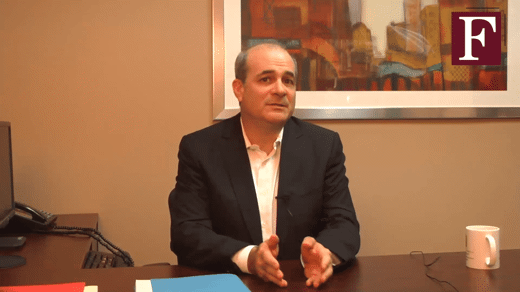Hello, my name is Jeffrey Hart and I am an associate at the Feldstein Family Law Group.
In today’s session, I will be discussing the family law consequences of a criminal conviction against a spouse in a family law matter.
Too often lawyers are faced with cases where one spouse has been charged with domestic violence against the other spouse. For example, where the parties have had an aggressive confrontation, one party may feel threatened and may contact the police for assistance, alleging that there has been domestic violence in the home. The alleged abusive spouse is then charged by the police and is given specific terms of his or her bail conditions. For example, a bail condition may be that the alleged abusive spouse cannot return to the matrimonial home or that he or she is only allowed to communicate with the other spouse through a third party and only in order to arrange access with his or her children.
This type of scenario may have a long standing impact on that spouse’s ability to communicate with, access and parent his or her child. If the abusive spouse is removed from the matrimonial home as a result of the actual or alleged domestic dispute, the accuser spouse usually gets what is termed ‘de facto’ custody of the child and ‘de facto’ exclusive possession of the matrimonial home, sometimes regardless of who has had the role of primary caregiver in the past. “De Facto” means existing based on the facts, even though not formally recognized in law. In a case where for example, the father is removed from the home by police and there is a restraining order which prohibits him from going to the home or communicating with the mother, the mother has de facto custody of the children and de facto exclusive possession of the matrimonial home.
The parent who has de facto custody of the children may be at an advantage in seeking and obtaining a final custody order. Although a court will look overall at what custody and access situation best reflects and promotes a child’s best interests, the courts may look to maintain the status quo in making their final order. Therefore, where one parent has de facto custody or an interim custody order, the courts generally favour stability and continuity and may refuse to disrupt the existing state of affairs.
When a spouse has been charged with a criminal offence, as in the scenario I have discussed, the first step is for that spouse to retain a criminal lawyer. While a lawyer may not be able to do much about the family law matters until the criminal charges have been dismissed, he or she should attempt to ask the criminal lawyer to obtain an Order from the criminal court stipulating that access be determined in accordance with an order from a family court and not by the spouse’s bail conditions.
If your family has been affected by domestic violence which you believe may impact your family law matter, please call us to book an appointment with one of our experienced lawyers at 905-581-7222, or visit our website at www.separation.ca. Thank you for watching and I will see you next time!



